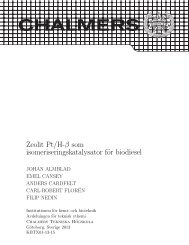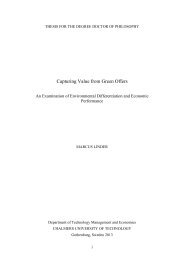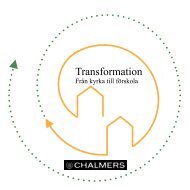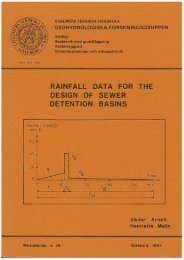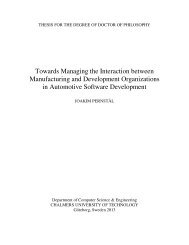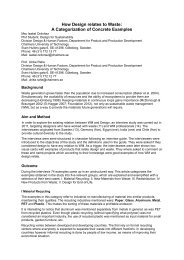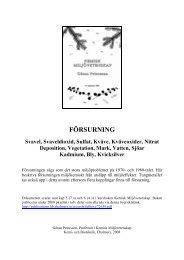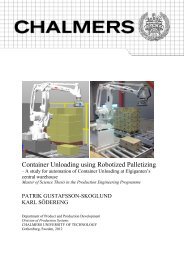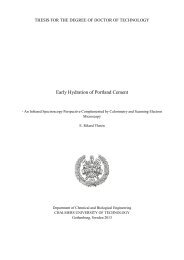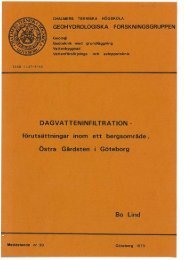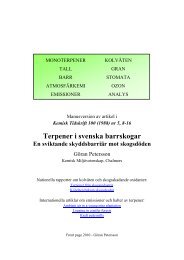A computational grammar and lexicon for Maltese
A computational grammar and lexicon for Maltese
A computational grammar and lexicon for Maltese
Create successful ePaper yourself
Turn your PDF publications into a flip-book with our unique Google optimized e-Paper software.
tie_V2 qafel - maqful<br />
travel_V vvjaġġa - vvjaġġat<br />
turn_V dar - mdawwar<br />
underst<strong>and</strong>_V2 fehem - mifhum<br />
vomit_V qala’ - maqlugħ<br />
wait_V2 stenna - mistenni<br />
walk_V mexa miexi mmexxi<br />
wash_V2 ħasel - maħsul<br />
watch_V2 ra - -<br />
win_V2 rebaħ - mirbuħ<br />
wipe_V2 mesaħ - mimsuħ<br />
wonder_VQ kkuntempla - kkuntemplat<br />
write_V2 kiteb - miktub<br />
B.3 Vowel changes<br />
As in many languages, affixation in <strong>Maltese</strong> often causes vowel changes in the word stem. The<br />
sections below cover some common ambiguous cases of this.<br />
B.3.1<br />
Object suffixes<br />
Consider the inflected verb <strong>for</strong>m rajna (‘we saw’) <strong>and</strong> the pronominal suffix -k indicating P2 sg.<br />
as a direct object. According to (Brother Henry F.S.C., 1980, p. 166), whenever a verb ending<br />
in -a has an enclitic pronoun suffixed to it, the joining vowel changes to an ie. Thus rajna + -k<br />
→ rajniek (‘we saw you’). This rule is clearly established, despite the fact that based on how it<br />
sounds as a native speaker a shorter-vowel spelling rajnik seems more natural.<br />
Searching <strong>for</strong> both versions in the <strong>Maltese</strong> corpus, in fact, reveals that both <strong>for</strong>ms appear<br />
equally as often as each other. In general, looking at the frequency counts <strong>for</strong> tokens ending in<br />
-jniek <strong>and</strong> -jnik, the <strong>for</strong>mer occurs 17 times <strong>and</strong> the latter 18 times.<br />
A identical situation exists with enclitic pronouns <strong>for</strong> indirect objects too. Thus kantajna<br />
+ -ilek → kantajnielek (‘we sang <strong>for</strong> you’), even though kantajnilek sounds like a more accurate<br />
transcription of the spoken <strong>for</strong>m. The corpus results are again split, reporting 11 occurrences<br />
of tokens ending in jnielek, <strong>and</strong> 10 <strong>for</strong> jnilek. (Borg & Azzopardi-Alex<strong>and</strong>er, 1997) claims the<br />
<strong>for</strong>mer is correct, with an ie.<br />
When combining both direct <strong>and</strong> indirect pronominal suffixes, one would expect the same<br />
rule as above to apply. This would produce the <strong>for</strong>ms rajniehulek (‘we saw it <strong>for</strong> you’) <strong>and</strong><br />
kantajniehulek (‘we sang it <strong>for</strong> you’). The corpus, however, contains exactly zero tokens which<br />
end with iehulek, <strong>and</strong> a significant 92 which finish with ihulek. So in this case, the corpus results<br />
seem to contradict the rule. Some personal communication on the ‘Kelmet il-Malti’ Facebook<br />
group 1 seems to indicate that the rule cited above no longer applies, <strong>and</strong> the more natural<br />
1 https://www.facebook.com/groups/246657308743181/, accessed 2012-08-29<br />
82


